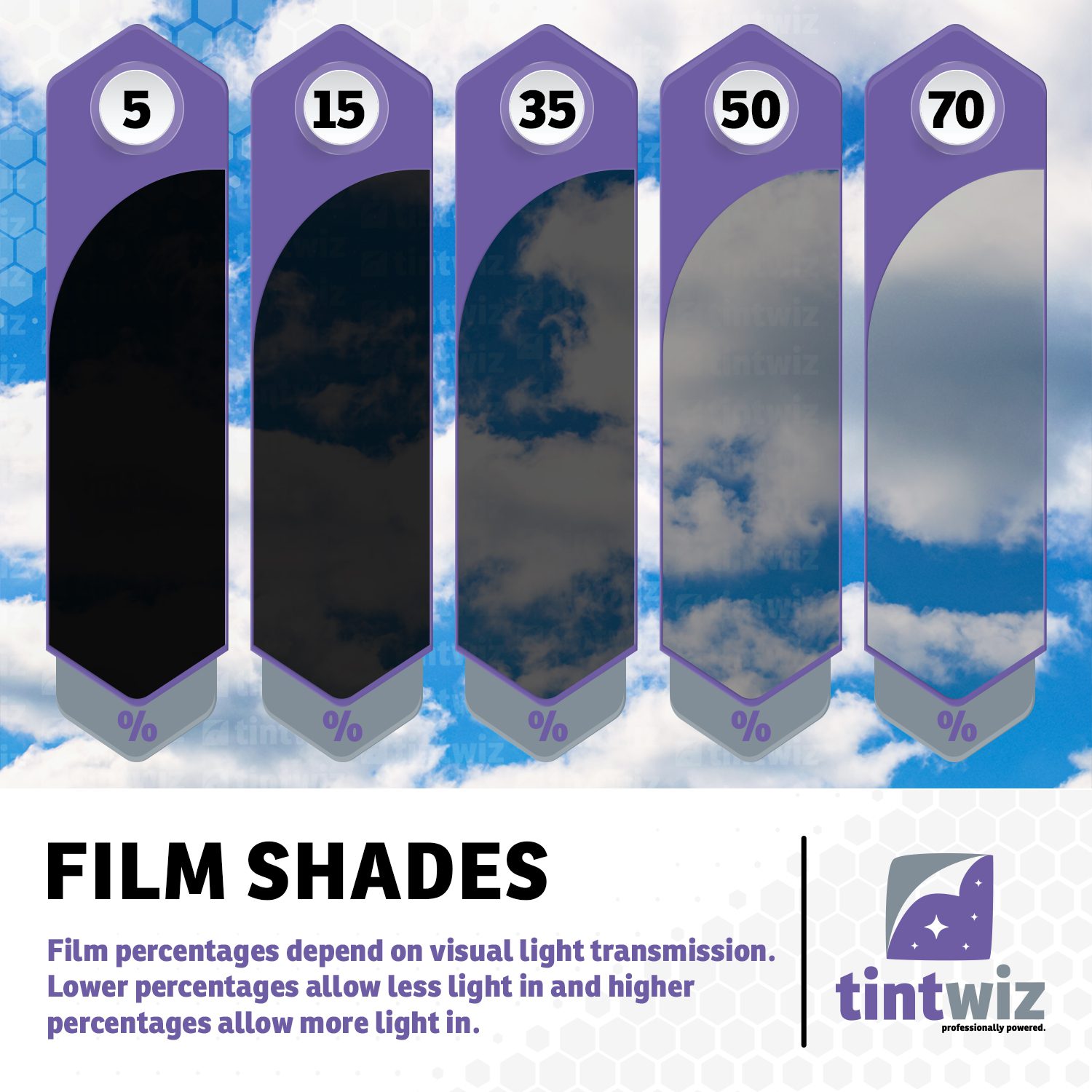Darkest legal tint for Cars in Michigan
- Windshield: Non-reflective tint is allowed on the top 4 inches of the windshield
- Front Side windows: Any darkness can be applied but only on top 4 inches
- Back Side windows: Any darkness can be used
- Rear window: Any darkness can be used
Darkest legal tint for SUV and Vans in Michigan
- Windshield: Non-reflective tint is allowed on the top 4 inches of the windshield
- Front Side windows: Any darkness can be applied but only on top 4 inches
- Back Side windows: Any darkness can be used
- Rear window: Any darkness can be used
Please note: The accuracy, completeness, adequacy or currency of the content is not warranted or guaranteed. We are not lawyers or a law firm and we do not provide legal advice. We recommend you consult a lawyer or other appropriate professional if you want legal advice.

Michigan’s window tint laws for cars have only been in place since the year 2000, making the state a relative latecomer when it comes to passing state window tint laws. That said, by the year 2000 window film technology was already well into advanced development stages, so the rules created then have required less updating than in states like, for example, Massachusetts, where window tint rules were established in 1985.
The car window tint laws in Michigan are in many ways simple than those in other states, as all front side windows and rear side and rear windows are subject to the same rules regardless of vehicle type, whereas in other states tint laws are different based on vehicle type – SUV, truck, van, or car, e.g. On the other hand, there are a few very specific caveats to Michigan state window tint laws that are not found in other places, so you need to read through the below breakdown of tinting laws with care if you want to avoid a tint violation ticket in Michigan. While Michigan tint laws are generally permissive, illegal window tint can be treated as a primary offence, meaning you can be pulled over and ticketed for the window tint alone, while in other states tint violations are only assessed as secondary offenses.
In many cases, a window tint traffic stop in Michigan will lead only to a so-called “fix it ticket,” where you have a period of time to rectify the illegal tint and then prove you have done so, after which you may pay only $25 in processing fees (this is not to mention the expense of replacing window tint) but it is at the discretion of police officers to issue larger penalties, so don’t risk getting stopped for illegal window tint that is clear as day to see and that can be tested on the scene in real time, no less.
Windshield Window Tint in Michigan
If your vehicle does not already have factory installed windshield tint, as many cars come with, adding this window film is a good idea even if it’s the only aftermarket window tint you get for the whole vehicle. Windshield window tint can cut the blinding glare of sunlight shining down from above, a glare that can be particularly dangerous in the earier morning or later afternoon hours when the light is at more acute angles.
If your car, truck, or SUV does not already have windshield window tint, you are allowed to apply aftermarket window film to the front windshield down to the top four inches of the glass. Note that the same limit applies to all types of vehicle and know also that this four inch limit is more restrictive than you find in many states, which usually allow tint down to five or six inches or to the manufacturer demarcated AS-1 line. The issue is that windshield tint that’s perfectly legal in many states may be illegal in Michigan, so make sure you measure any existing windshield tint if you are registering a vehicle in Michigan. And make sure your windshield tint is non-reflective so it stays within the law.
Side Window Tint and Rear Window Tint Rules in Michigan
Michigan’s window tint laws apply the same to all vehicle types – meaning sedans, SUVs, trucks, vans, and so on – but they are more specific than found in many states, and violations are easy to spot, so heed these regulations closely.
In Michigan, front side windows, meaning those beside the driver and the shotgun passenger, may only have tint along the top four inches of the glass. This tint can be of any darkness and, unlike with the front windshield tint, it can be up to 35% reflective. These bands of tint are, like the window film on the windshield, meant to reduce sun glare on the driver’s face, keeping his or her view clearer and meaning a safer driving experience. By leaving the majority of the glass clear, the front cabin is still plainly visible to people outside, especially law enforcement officials who may stop the vehicle.
As illegal front side window tint is so obvious given these specific rules, violating the policies of the state is almost sure to result in a citation at some point.
All types of vehicles under Michigan tint laws have much more leeway when it comes to window tint for rear side windows and for the rear windshield, however: any darkness of window tint may be used, down to full privacy tint that makes the windows impervious to the view from outside eyes. These rear windows are also limited to 35% reflectivity, it must be noted.
Most colors of window tint are legal in Michigan except for silver and gold colors, which are banned under current Michigan law.
Michigan Window Tint Law Exemptions and Other Rules
Many motorists with conditions ranging from glaucoma to migraine headaches to skin ailments can benefit from darker window tint than what is allowed on front side windows under Michigan law. Fortunately, Michigan law allows for medical window tint exemptions that can permit darker tint applied over the whole of the front windows. You need a doctor’s note proving you qualify for a medical exemption and you may get pulled over for your tint from time to time, but you will not be cited if you can prove darker tint is medically beneficial for you.
All window tint sold or installed in Michigan is expected to comply with state tint laws, but window film manufacturers, installers, and vendors need not certify the film the offer specifically complies with the state’s rule; the onus is on the end user to have legal tint, and in good faith all providers should ensure as such. Likewise, no sticker is needed to prove a tint used in Michigan is permitted, but of course an officer or inspector can easily measure a window tint to see if it extends down below a legal length.
If tint of any darkness is applied to the rear window of a vehicle (or if it is otherwise obstructed) then the driver must have dual side view mirrors in good working order.
In Michigan, first window tint violations often result in the aforementioned “fix it ticket” wherein only a small processing fee will be assessed if the vehicle owner fixes the illegal tint issues and then proves the matter rectified. Failure to act or subsequent tickets can result in larger fines and can be considered more serious offenses, albeit of a civil nature, not criminal.









